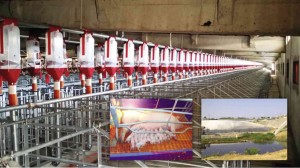Manila’s truck ban and the resulting congestion at the country’s major ports have resulted in a likely slowdown in the local manufacturing and retail sectors—key drivers of domestic economic activity.
The composite purchasing managers index (PMI) declined in July, data from the Bangko Sentral ng Pilipinas (BSP) showed, with all indications pointing to the damming effects of Manila Mayor Joseph Estrada’s truck ban.
“Respondents attributed this to the truck ban policy and port congestion problems that trapped goods in transit,” the BSP said in a report.
For July, the PMI, a reliable indicator for the expansion of certain sectors, declined to 56.8 points from 59.5 points in June.
This came despite an improvement in the Services sector’s PMI, which was more than offset by declines in the Manufacturing and Retail industries.
Despite the decrease, the overall PMI score still points to growth, which bodes well for the rest of the economy.
The PMI, which is published locally by the Philippine Institute for Supply Management (PISM), is a measure of an industry’s health based on new orders, inventory levels, production, supplier deliveries and the employment environment.
A PMI score of more than 50 indicates a month-on-month expansion of an industry, while a score below 50 indicates a contraction.
For the services sector, the PMI was higher at 63.7 points from 61.2 in June and 58.5 points in July of 2013. This improvement was overshadowed by the reductions in manufacturing PMI to 55.2 from 56.1 the month before, and in retail and wholesale trade, to 52.6 points from 58.


